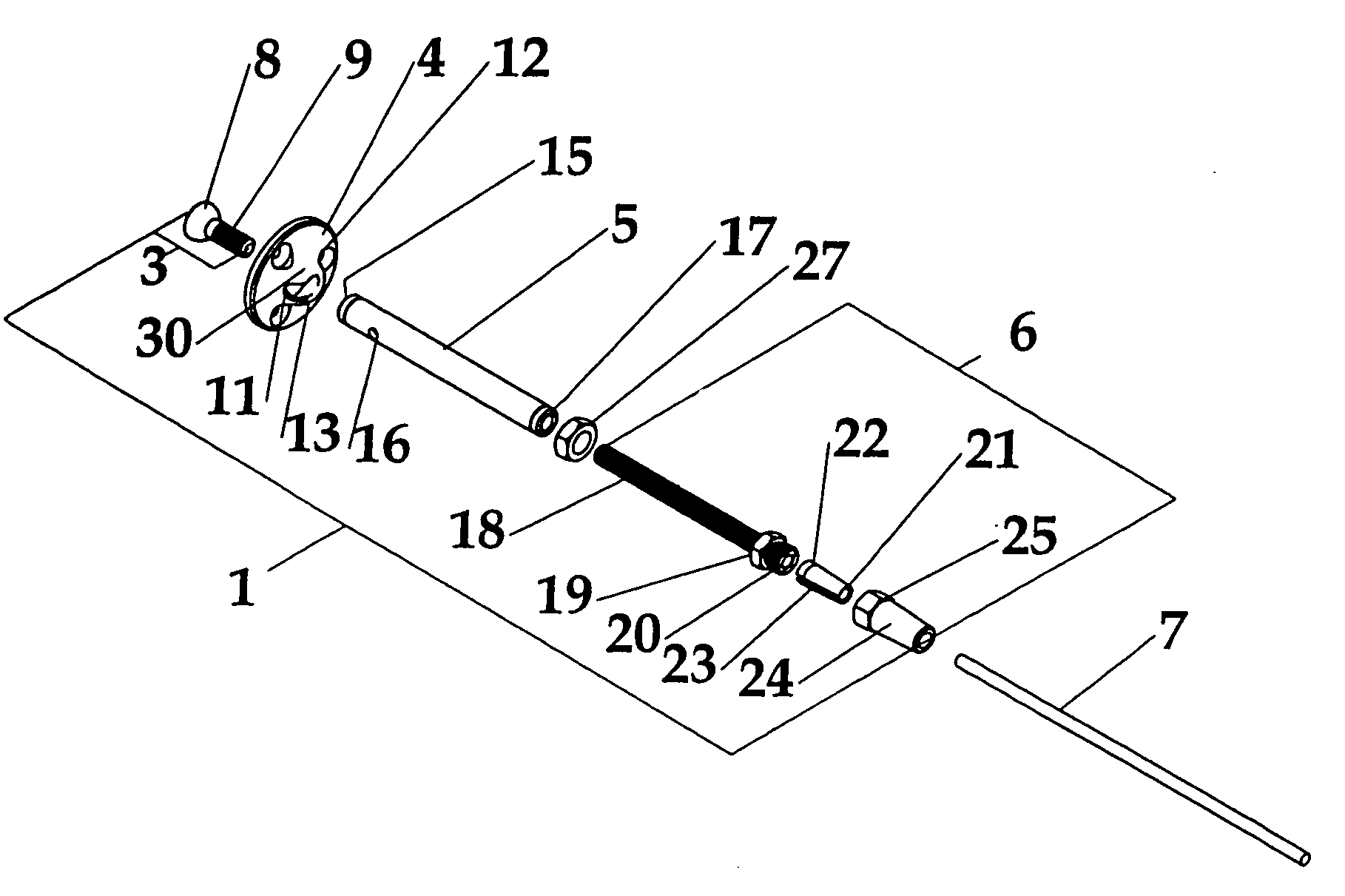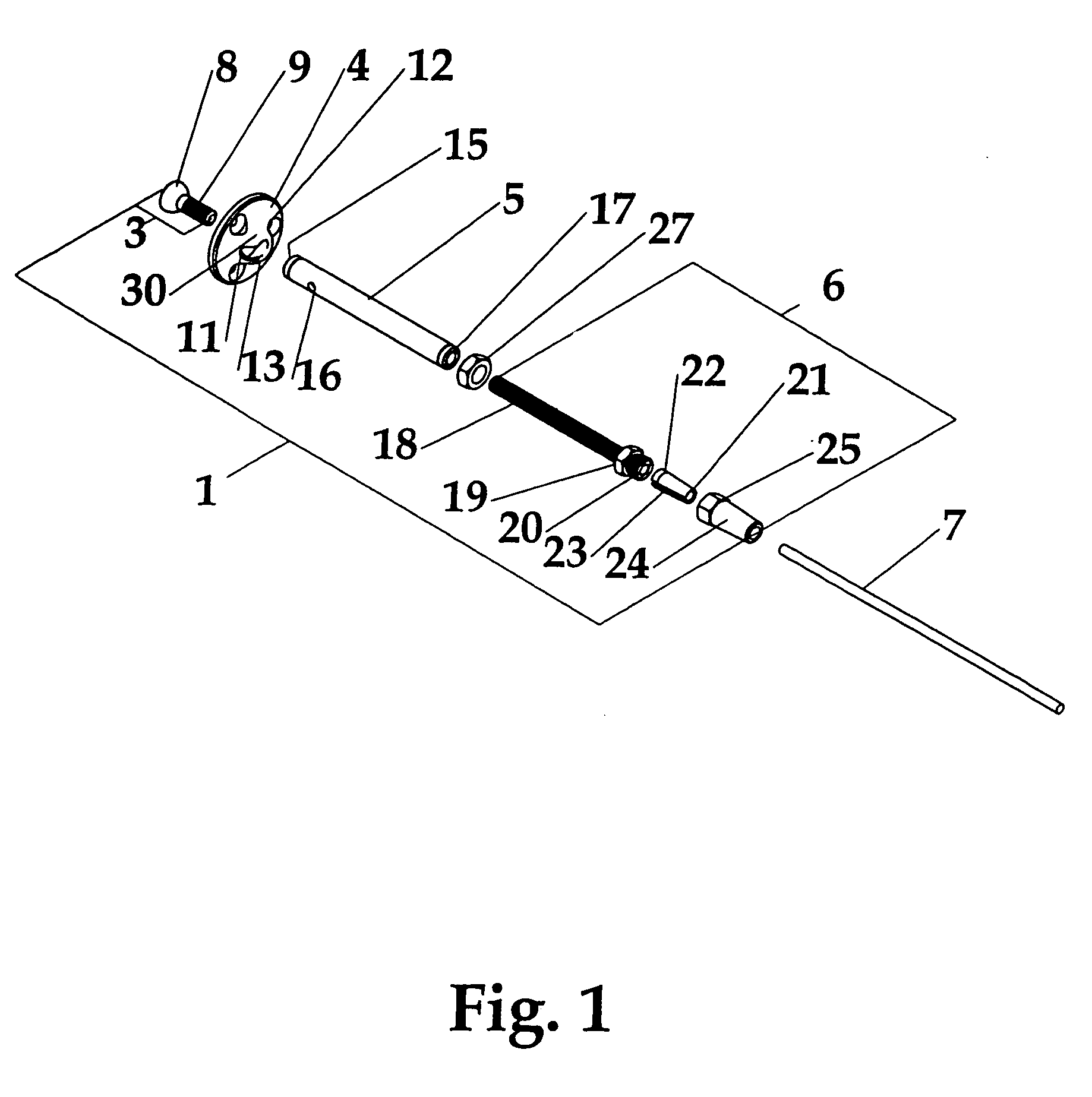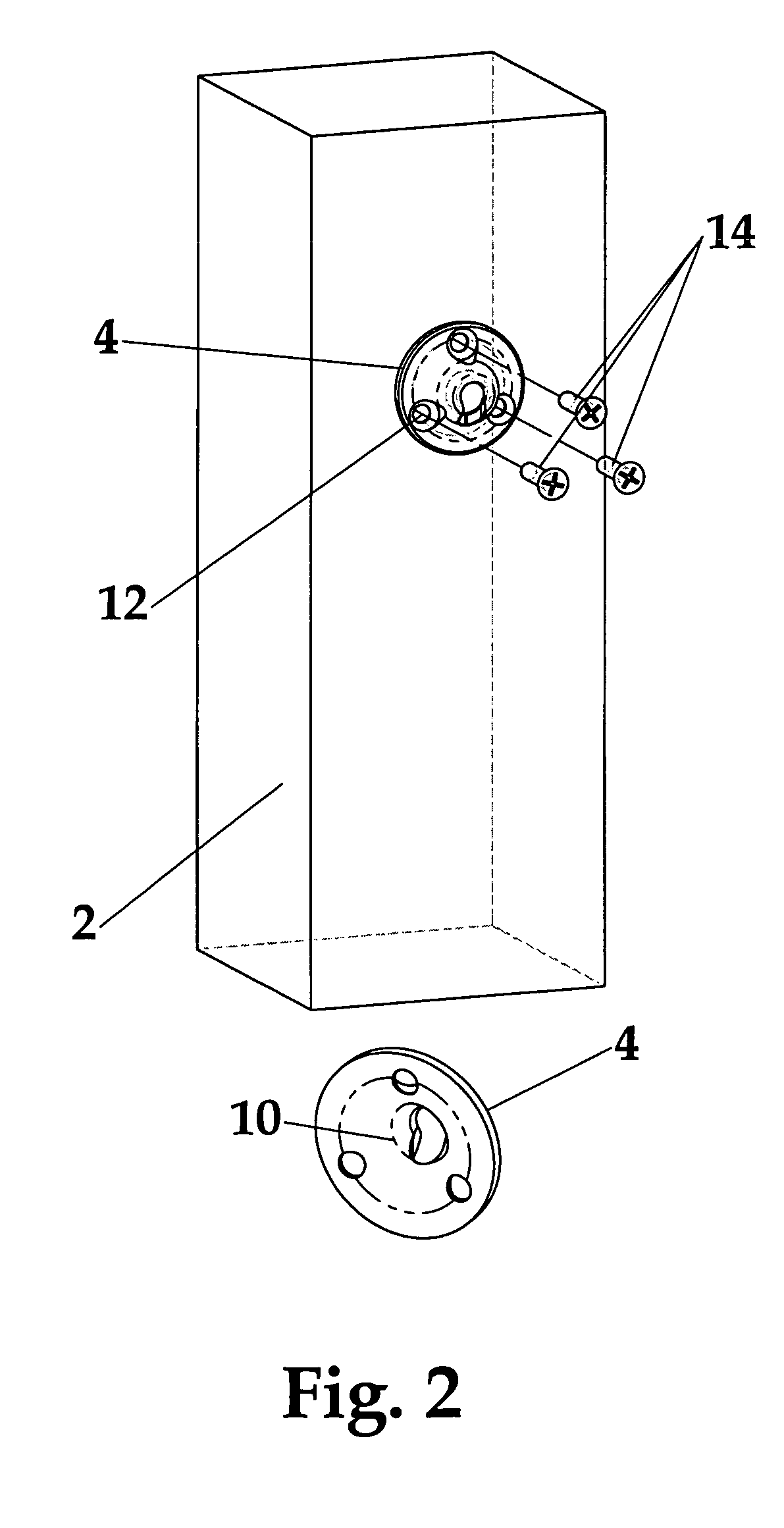Wire rope connectors and tensioners for deck railing systems
a technology of tensioner and wire rope, which is applied in the field of railing systems, can solve the problems of corroding faster, requiring more care, and requiring labor-intensive attachment of such wooden balusters, and achieves the effects of reducing waste of wire, facilitating turning the device, and simple tools to effect the tension
- Summary
- Abstract
- Description
- Claims
- Application Information
AI Technical Summary
Benefits of technology
Problems solved by technology
Method used
Image
Examples
Embodiment Construction
[0033]The present invention provides a wire rope attachment means, tensioning means, and railing systems incorporating such means.
[0034]In a preferred embodiment, shown in FIG. 1 in an exploded perspective view, the present invention provides wire attachment assembly 6 that can be combined with a tensioning assembly to form a wire attachment and tensioning device 1. Each sub-assembly is preferably made entirely from stainless steel, or other corrosion resistant materials. In a preferred embodiment, the device is comprised of a threaded swivel 3, a mounting plate 4 having a center aperture 13, a tubular body 5 and the threaded wire rope attachment assembly 6 including a gripping wedge 22, collar 24 and rigid threaded stud 18.
[0035]The tensioning assembly is rotatably attachable to (or through) a support surface such as a railing post or a wall and includes a threaded end 17 to engage a threaded end of the stud 18 such that rotating the tensioning assembly adjusts the distance between...
PUM
| Property | Measurement | Unit |
|---|---|---|
| angle | aaaaa | aaaaa |
| distance | aaaaa | aaaaa |
| length | aaaaa | aaaaa |
Abstract
Description
Claims
Application Information
 Login to View More
Login to View More - R&D
- Intellectual Property
- Life Sciences
- Materials
- Tech Scout
- Unparalleled Data Quality
- Higher Quality Content
- 60% Fewer Hallucinations
Browse by: Latest US Patents, China's latest patents, Technical Efficacy Thesaurus, Application Domain, Technology Topic, Popular Technical Reports.
© 2025 PatSnap. All rights reserved.Legal|Privacy policy|Modern Slavery Act Transparency Statement|Sitemap|About US| Contact US: help@patsnap.com



